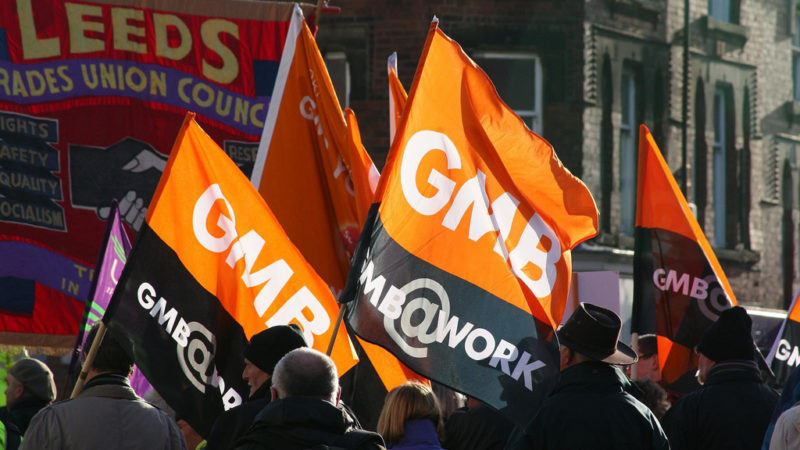
GMB is currently without a general secretary. The union has acting general secretary John Phillips filling in, but will soon need to elect a replacement for Tim Roache. LabourList has put together a quick guide to the Labour-affiliated union’s election before it gets underway.
Why is the election happening?
Tim Roache stood down from the general secretary position in April, less than six months after he was re-elected with 61% of the vote. He cited ill health as the cause, but was facing allegations of impropriety that he strongly denies.
Roache was first elected as the GMB head in 2015 as the successor to Paul Kenny, under whose leadership the union secured some of the best pay deals since the financial crash for its members. After Roache stood down, an independent investigation was launched into sexism at the trade union.
The conclusion of that independent investigation was damning, with the very first line of the report reading: “The GMB is institutionally sexist”. The report authored by Karon Monaghan QC concluded that there was “significant job segregation” at the union and that branches were “male-dominated with limited female participation”.
The document declared that “bullying, misogyny, cronyism and sexual harassment are endemic within the GMB”. It also criticised the behaviour of past general secretaries at the union, in particular their mismanaged handling of sexual harassment complaints.
The union’s general secretary election is starting to be seen by many as a chance for the GMB leadership to break from the kinds of behaviour detailed in the report and work to improve the culture at the union.
Who is likely to stand?
Although there have been no official announcements from any candidates yet, it is largely expected that the election will end up being a two-horse race between Gary Smith and Rehana Azam.
Smith is currently the union’s Scotland secretary, a role he has served in since 2015. He was an outside candidate in that year’s general secretary election after unexpectedly receiving over three times the nominations needed to stand, although he eventually dropped out of the race that Tim Roache went on to win.
He created headlines earlier this year after he refused to support Scottish Labour leader Richard Leonard, who had been a lifelong member and former officer in the GMB, when his position was being challenged.
Azam has served as one of the GMB’s national officers for many years, having initially been elected in 2004 as the officer responsible for the union’s equalities policy. She has previously described her experience of first getting involved in workplace organising after she was racially abused for her Asian heritage while working in a clothing factory.
The GMB national officer has been vocal about the need to act on the sexism report, tweeting at the time of its release: “No longer can we airbrush, dismiss or dilute people’s lived experiences. All talent should be nurtured, all achievement celebrated and no position should ever be inaccessible to any member because of their gender or background.”
How does it work?
In the 2019 general secretary election, candidates needed at least 50 nominations from local GMB branches and two nominations from the union’s nine wider regions to make the ballot. Ballots were then distributed to the union’s more than 620,000 members to vote on the qualified candidates. Only 8.5% of eligible members voted in the 2019 election.
LabourList reached out to the union to ask about any changes to the election process that might be implemented this year, but has not received an answer. There has been no official announcement on a timeline for the election yet.
Why does it matter?
For one, whoever wins the contest is expected to facilitate the creation of a new culture in GMB. The Monaghan report criticised the behaviour of several former GMB general secretaries, and this election offers the chance for their successor to forge a new path. What the future candidates say about the report and the outcome of the race will also tell us how likely it is that the union will go on to make radical changes.
The election will have interesting consequences for the Labour Party. GMB has not been hostile towards Keir Starmer, notably helping him to secure his favourite for the party’s own new general secretary, but the union nominated Lisa Nandy – of whom Roache was a big supporter – in the leadership election. The beliefs and priorities of the next GMB general secretary will shape its relationship with Labour and its leadership.




More from LabourList
Starmer the class warrior? PM pivots focus towards ‘class divide’
FBU launches ballot on strike action in Oxfordshire over cuts to fire service
Lord Doyle has whip suspended over links to sex offender